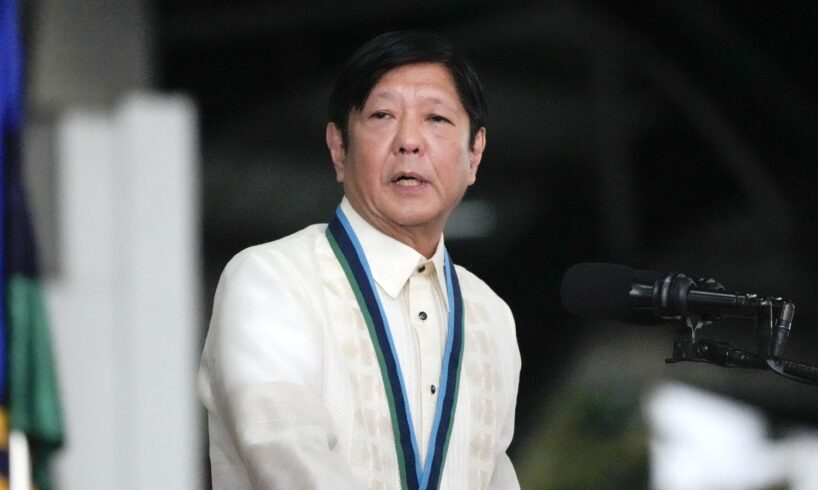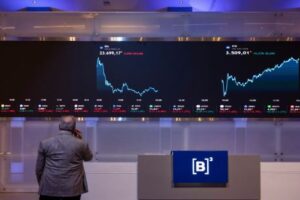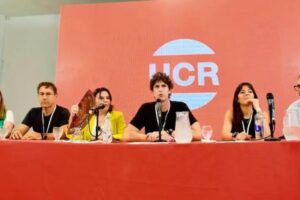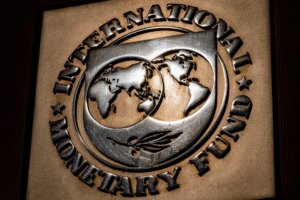
A political crisis in the Philippines over revelations of immense corruption has thrown the political elite into turmoil. Fueled by explosive social unrest, the crisis is moving towards a possible military coup, as no faction of the Philippine elite seems to have the capacity to contain the growing instability.
Philippines’ President Ferdinand Marcos Jr. speaks at 88th anniversary of the Armed Forces of the Philippines at Camp Aguinaldo military headquarters on Dec. 21, 2023. [AP Photo/Aaron Favila]
Typhoons have repeatedly hammered the country this rainy season, tearing apart poorly maintained infrastructure. Hundreds have died and hundreds of thousands have lost power, shelter, and access to water.
The price of oil has gone up by more than 33 percent since the beginning of the year, driving up transit costs and price of basic necessaries. Since the beginning of October, the price of oil has gone up seven times. Gasoline rose from P44 per liter at the beginning of October to P58 per liter by 10 November.
Rice prices are rising. Government regulated rice, sold at twenty pesos per kilo, is only available to a select group and is not available to the majority of the poor. The market price for locally grown rice is from P38 to P45 a kilo, more than twice what is deemed affordable. Rice is the most essential staple in the Philippine diet and its price has long been a bellwether of social anger.
The corruption charges and political instability rest atop this explosive social crisis. The elite are all pointing fingers at each other, hoping to use corruption charges to deflect mass outrage at the crisis of capitalism onto their political opponents. It is a mad scramble atop a rumbling volcano.
Corruption scandals are a routine part of elite politics in the Philippines. They are a well-established mechanism for venting social frustration, restabilizing elite rule, and promoting renewed illusions that mass poverty, the product of capitalism, can be remedied with “good governance.” These regular blood-lettings have been a part of every presidential administration for the past three decades. On one occasion, they culminated in the ouster of the president, Joseph Estrada, in a constitutional coup backed by the military.
The current crisis is the sharpest since the removal of Estrada. The political instability fueled by social unrest has been immensely sharpened by geopolitics. The Philippine elite is torn apart by speculation over the fickle uncertainties of the Trump administration and its tariffs, and above all by Washington’s advanced preparations for war with China.
The Philippine elite is divided into two warring factions: that of the president, Ferdinand Marcos Jr; and that of the vice president, Sara Duterte, daughter of the former president Rodrigo Duterte.
Over the past three years, Marcos has fully integrated the Philippines into the march of US imperialism toward war with China. US forces, based in the country, now oversee confrontations between the Philippine military and Chinese Coast Guard in the South China Sea. US medium range missiles based in the Philippines target Beijing. The Philippine military speaks openly of going to war with China over Taiwan.
Gen. Romeo Brawner Jr, head of the Armed Forces of the Philippines, told the press earlier in the month that if war broke out with China, the Philippines would need to fight on its own for at least a month before they could expect assistance from the United States. Washington, he stated, is “expecting us to fight the war ourselves during the first part of the conflict… We will be the ones to go to war first.”
It is impossible for anyone familiar with the history of the Philippines to read such lines and not recall how the Philippines was left by Washington to fight on its own against Japan. US imperialism is provoking a war that it expects others to fight.
The Duterte faction expresses a growing sentiment in sections of the elite that the country’s future economic growth requires improved relations with China. This in turn requires that Manila distance itself from Washington’s open aggression.
Over the past year the political warfare in the elite has sharpened drastically. Former president Duterte was arrested by Interpol and brought to the Hague on charges of crimes against humanity for the mass murder committed under his administration’s so-called ‘war on drugs.’ Vice President Duterte was impeached but her allies in the Senate oversaw the dismissal of charges against her. Marcos suffered a significant setback in the midterm elections and overhauled his administration, firing every cabinet member.
Toward the middle of the year, the exposure of massive corruption involving flood control projects, revealing that leading politicians had pocketed billions through the creation of so-called ghost projects, coincided with a particularly deadly typhoon season and rising prices. Social unrest came explosively close to the surface. The Senate president and the House speaker were both ousted. Neither faction of the elite was secure; all were the targets of anger.
At the center of the most recent accusations of corruption is former chair of the House Appropriations Committee Elizalde Co, now in exile outside the country, his whereabouts unknown. Co was accused of manipulating the 2025 budget to insert billions of pesos in non-existent infrastructure projects for which he received kickbacks, including through a construction company which he owns.
Over the past two weeks, Co has taken to releasing video statements on his Facebook page, accusing President Marcos of ordering the insertion of over 100 billion pesos into the 2025 national budget. In some of their details, the charges bear a remarkable resemblance to those raised against Estrada a quarter century ago: bagmen dropping off billions in cash at mansions in the exclusive Forbes Park. Even some of the names—politician Chavit Singson in particular—are the same.
Senate President Pro Tempore Panfilo Lacson, a far-right figure associated with the police and military who shares Marcos orientation to Washington, heads an investigation into the corruption allegations. A majority bloc of parties in the legislature have announced their support for the beleaguered president, but it is not stemming the tide of outrage.
The Marcos administration is again bleeding cabinet members. His executive secretary, Lucas Bersamin, and budget secretary, Amenah Pangandaman, were both removed last week. Their forced resignations and replacement occurred so rapidly that both Bersamin, and his replacement, former finance secretary Ralph Recto, learned of the transition from the press. Three undersecretaries resigned, facing charges of money laundering. One of these, Roberto Bernardo, confessed to the charges and is trying to become a state witness against the Marcos administration.
Last week, the Christian church, Iglesia ni Cristo (INC), which wields tremendous influence in Philippine politics, able to swing a multi-million voting bloc, staged a demonstration in Manila against corruption to which an estimated 600,000 people attended. It was a show of force, designed to increase the political clout of the church’s leaders, but it contained a mass sentiment that the church leaders did not fully control. Senator Imee Marcos, sister of the president, is in the camp of the Dutertes, and spoke at the rally, telling assembled crowd that her brother was addicted to illegal drugs.
At the same time, a shady new organization of retired military and police leaders calling itself the United People’s Initiative (UPI), staged protests calling on Marcos to step down. Protests from such forces indicate that coup plots are afoot in some sections of the military brass and junior officers, but how extensive and advanced such preparations are is unclear.
As more than a half a million people protested and as a cabal of ex-military leaders called for the ouster of the government. BAYAN, the umbrella organization of political groups that adhere to the Stalinist line of the Communist Party of the Philippines, issued a remarkable statement calling for the removal of both Marcos and Duterte from office, to be replaced by a “civilian-led transition council.”
BAYAN is directing its entire apparatus of organizations—unions, student groups, church affiliations—to back the creation of what amounts to an unelected junta to rule the Philippines. The phrase “civilian-led” implies the backing of the military. Looking to stabilize the desperate position of capitalism in the Philippines, BAYAN is claiming that corruption, and not capitalism, is the fundamental social ill plaguing Philippine society. They are calling for a military coup and putting forward a slogan that is effectively an appeal for dictatorship.
The Armed Forces of the Philippines issued a statement on their Facebook page declaring their intent to “uphold the constitution.” The fact that such a declaration was deemed necessary is an indication of the degree of crisis.
On the instructions of the Marcos administration, the military launched an investigation into allegations of a destabilization plot against the president involving a conspiracy of generals and retired generals with Vice President Sara Duterte and the Duterte family. Navy spokesperson Rear Admiral Roy Vincent Trinidad told the press on November 19 that China might be behind these plots, “interfering” in the corruption scandals and “dividing” Filipinos.
“We are looking at all possible avenues and areas to ensure that domestic concerns will remain domestic, and will not be influenced by foreign funding… Let us not forget,” he said, “we have a neighbor that wants Filipinos to fight among themselves and for the Philippines to be divided.”
The explosive crisis of Philippine politics is a product of social unrest and immense human misery, fueled by the crises ridden capitalist economy, and not the alleged interference of an outside power.
What is more, the main political power outside the Philippines actively intervening in its affairs, plotting ousters and stabilizing political allies, is not China, but the United States, the former colonial ruler of the country. For over a century, Washington has intervened in Manila’s affairs, selecting presidents, rigging elections, propping up a dictator, and aiding military coups.
New protests are scheduled for this weekend around the November 30 celebration of Bonifacio Day, a holiday with a long tradition of political demonstrations. BAYAN, the pseudo-left Akbayan, and the leadership of the Catholic church, have all announced that they intend to lead demonstrations.
On the instructions of Marcos, the police are preparing to deploy over 15,000 officers to control the protests.
Sign up for the WSWS email newsletter





